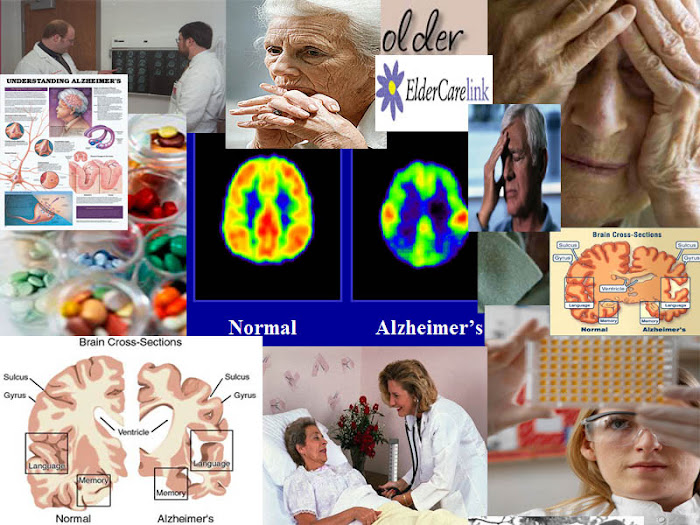Foundation Questions based off of my essential question:
"What are the treatment available to help the person and their family that has fallen victim to Alzheimer’s?"
1. How much of the treatment is available? Are nursing homes a better type of treatment for the disease?
2. Where is the treatment distributed, does location affect the amount of treatment one may receive?
3. What treatment is the best, does it depend on the severity of the case?
4. Is there treatment available for the families that would include something like support groups?
What are the possibilities towards finding a cure for Alzheimer’s?
1. What causes Alzheimer’s, what is used to treat it?
2. What are steps being taken to prevent and possibly cure it?
3. Why are the majority of Alzheimer’s victims elderly, what is the youngest age capable of getting it?
4. What are the scientific factors that make the disease incurable?
5. Is Alzheimer’s disease hereditary?
6. Are there ways to prevent the disease?
( I hope to have more foundation questions for the rest of my key terms)
Subscribe to:
Post Comments (Atom)
Key Terms
- 1. Warning Signs: There are 10 classic warning signs of Alzheimer's disease, which include: memory loss, Difficulty performing familiar tasks, problems with language, disorientation to time and place, poor or decreased judgment, problems with obstract thinking, misplacing things, changes in mood or behavior, changes in personality, and loss of initiative.
- 2. Targeted Victims: Most patients with Alzheimer's disease are over 65 years of age.
- 3. Research: Researchers have learned most of what they know about Alzheimer's disease in the past 15 years. Researchers are looking for new treatments to alter the course of the disease and improve the life of the people with dementia. Healh professionals divide symptoms in "Congative, Behavioral and mental" this will help detemine which treatment is best to use in the different cases.
- 4. Counseling: Caring for the caregiver is an essential element of managing the patient with Alzheimer's disease. Caregiving is a distressing expeirence. On the other hand, caregiver education delays nursing home placement of Alzheimer's disease patients. (The three(3) R's: "Repeat, Reassure, and Redirect.") These can help caregivers reduse troublesome behaviors and limit the use of medications.
- 5. Treatment: There is no cure for Alzheimer's disease but there are drug and non-drug treatments that can help with both "Cognitive" and behavioral symptoms.
- 6. Alzheimer’s Disease: Is a brain disease that destroys brain cells which causes problems with memory, thinking and behavior. It is sever enough to affect work, lifelong hobbies, or social life. It gets worst over time, and is fatal. It is the sixth-leading cause of death in the United States.
Helpful Links
- Alzheimer's Association
- Alzheimer's Disease Research
- Alzheimers association:AD Facts & Figures
- Class Blog Center
- HelpGuide: Caregivers Guide
- HelpGuide: What Care Givers Need
- Knowing The Stages of Alzheimers
- Making the Diagnosis
- Managing Alzheimer's with Combination Care
- MedicineNet: Symptoms,Diagnosis,& Treatment (AD)
- Namenda: AD and Its Effects on The Brain
- Namenda: Symptoms & Stages
- National Institute of Aging
- Stages of Alzheimers
- WebMD
- What is Alzheimers
- wikipedia: AD Caregiving and Dementia
- Wikipedia:AD

No comments:
Post a Comment